Articles Menu
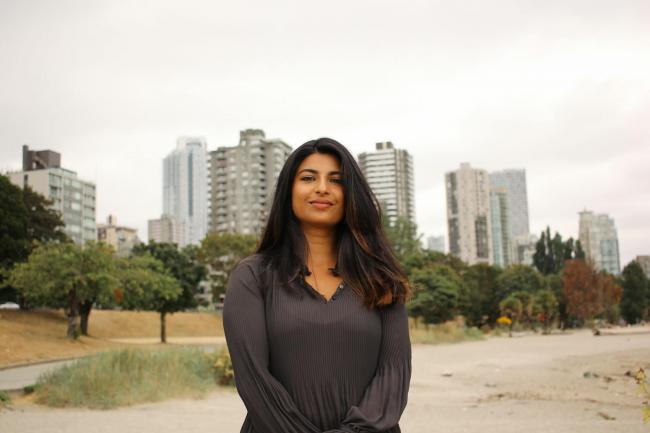
Aug. 29, 2022
Inspired, bemused or aghast, there’s one thing almost every description of Anjali Appadurai’s leadership run agrees on: it probably won’t end in victory.
The 32-year-old climate activist has never held office in her life but she’s running to be the next leader of B.C. Late June, Premier John Horgan announced he was stepping down mid-term, kickstarting a leadership race within the NDP.
The person Appadurai’s up against isn’t a front-runner so much as a torch-bearer. David Eby entered this race with the support of 84 per cent of his caucus. The NDP is more popular in B.C. than it’s been in a generation and, according to a July poll, would easily win the next election with Eby at the helm.
By those metrics, there isn’t much reason for anyone to bet on Appadurai. But these facts obscure a major truth hiding in plain sight: there will never be an easier race for someone like her to win.
Going into this race the party had about 11,000 members — it was up around 20,000 when Horgan was elected as leader but after a leadership race it’s common for members to drop off, a representative from the B.C. NDP told The Narwhal. If Appadurai brought those members back, that would almost certainly be enough.
“The math is very compelling,” says Alexandra Woodsworth, a campaigns manager for Dogwood BC, a democracy group urging its supporters to join the NDP before the Sept. 4 deadline to become a member of the party and vote in the leadership race. “The opportunity to directly elect a sitting premier is a chance to do something really big with one vote,” Woodsworth said. “This is not a long shot. This is a real shot.”
Before you write that off as wishful thinking, consider the numbers. Appadurai doesn’t need any more supporters than you’d find at the kind of marches she organizes for a living. When Greta Thunberg paid Vancouver a surprise visit in 2019, “20,000 people were organized to show up with less than two weeks’ notice,” Appadurai reminded me when we caught up over the phone last week.
This time, for $10 and a few minutes online, a movement that prides itself on direct action could put their own champion in the premier’s office. Is it likely to happen? Nope. If it doesn’t, will the fault lie with Appadurai, or with the movement she represents?
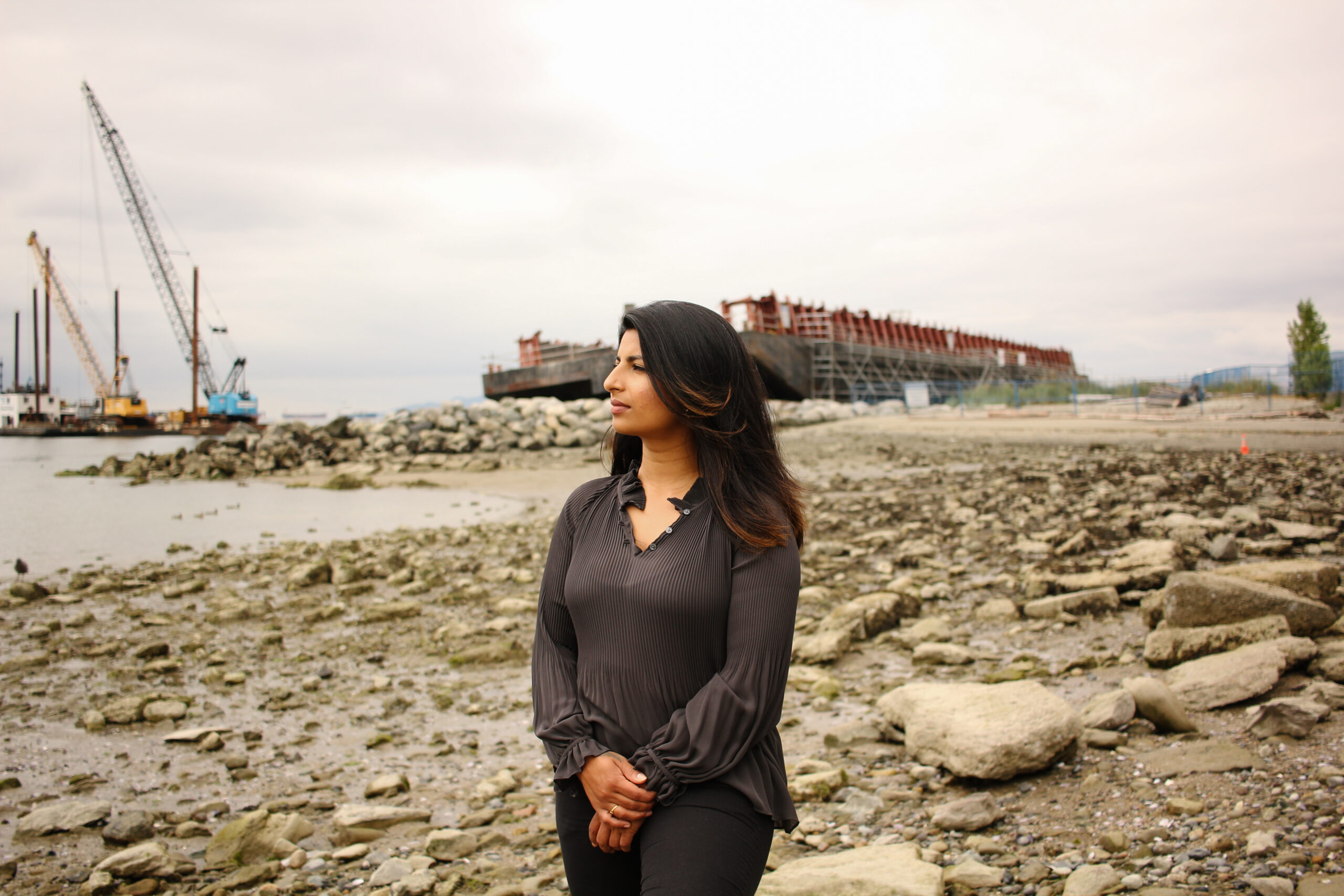
Movement building is at the core of Appadurai’s theory of change. “Social movements are the beating heart and the moral compass of our time,” she told me. “I think that each individual contribution can go a long way, but it’s never as important as the collective.”
She thinks and speaks in the language of the cause. This may be her second run for office — in 2021, she came within about 400 votes of taking Jody Wilson-Raybould’s former seat for the federal NDP — but she still struggles to explain exactly why she wants to jump the fence and change the system from within. Her reluctance to speak like a politician, to sell herself along with her cause, is both a strength and a weakness.
“What she’s hoping to do here is fuse a social movement with a political party,” Hamish Telford, a political scientist at the University of the Fraser Valley, told me. When I asked Telford if he could think of any successful precedents for that kind of attempt, he reminded me that long before the Greens became a political party, both in Canada and internationally, they’d been a movement, too.
This raised a question Appadurai gets a lot: why would a climate champion choose the NDP over the Greens? Appadurai laughed when I asked her. “That’s the first thing David Eby asked me, too,” she said.
Her answer spoke volumes, not just about the two parties in question but also about the nature of the climate crisis itself. “I didn’t go through the ‘regular’ route of learning about climate as an environmental issue,” she said. “I bypassed that entirely. I was interested in humanitarian issues first. Then I went abroad for university and started working on international climate politics. So my understanding of climate is as an economic and political issue. To me, climate justice is fundamentally about putting people and the planet first, above private interests,” she told me.
“That’s an economic philosophy that is meant to be at the heart of the NDP as a worker-first party. There’s a well-rounded framework already at the heart of this party that we need to return to.”
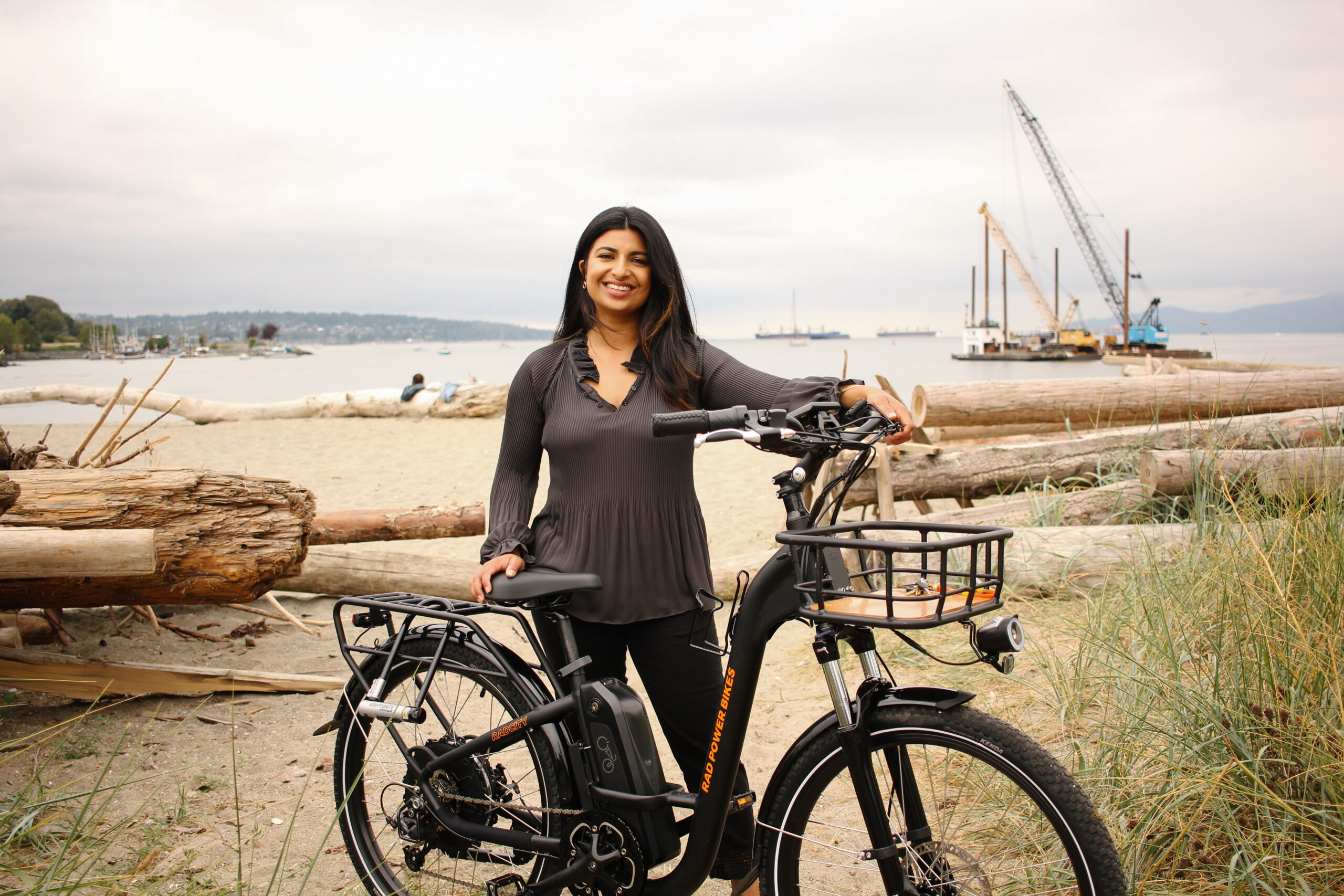
Her words called to mind something Telford had said: Eby, he felt, “is fighting for power. She’s fighting for the soul of the party.”
When asked about the people who inspire her, Appadurai cites NDP icons like Dave Barrett, B.C.’s first NDP premier, and Rosemary Brown, the first woman of colour to be elected to provincial parliament when she won the Vancouver-Burrard race in 1972. And she admires Alexandria Ocasio-Cortez, the young American politician and activist to whom she’s frequently compared. But many of her greatest influences come from outside politics and North America.
“I’ve had the fortune to be mentored by social movement leaders from around the world,” Appadurai said. People like Martin Khor, the late Malaysian activist best known for his role in the anti-globalization movement, and Yeb Saño, the Filipino climate activist “who did exactly the opposite of what I did — he went from being a bureaucrat to being a movement leader.”
Appadurai met Saño in 2013 at a United Nations climate conference in Warsaw. Saño was the lead negotiator for the Philippines’ delegation, but his country had just been struck by what was then the deadliest superstorm in history, typhoon Haiyan.
“I remember the assembly when he stood up and made a statement about Haiyan. His brother was back home pulling bodies out of the floodwaters in his hometown and he was there in this hall of suits. He was locked in these multilateral negotiations that have been held up and blocked by the same colonial powers that have created the crisis. And the fundamental power struggle of climate change, the deep injustice of it, was really laid bare,” she said.
“At the end of his speech, he said he was going to fast for the remaining two weeks of the conference and he did. After that he was ousted from his role as the lead negotiator, and he went on to lead Greenpeace South Asia. Now he’s an activist.”
If provincialism can be defined as a failure to imagine the world beyond your borders, then Appadurai could be described as an anti-provincialist. She was born in the state of Tamil Nadu, in southern India, and spent the first six years of her life there before her parents immigrated to Canada and settled in Coquitlam.
She studied in the U.S. and has worked on countless international campaigns. But she has also lived in or near Vancouver for most of her life. She’s worked with three of the most formidable environmental groups in the province: West Coast Environmental Law, Sierra Club BC and the David Suzuki Foundation’s climate emergency unit (where she is currently employed). She is a rare thing in B.C. politics — a person thoroughly immersed in our cultural landscape who can also see beyond it.
Does that qualify her to run the province? In a country that allowed Rob Ford to run its biggest city, Doug Ford to run its biggest province and is likely to have Danielle Smith as the next premier of Alberta, perhaps the better question is: why should it disqualify her?
Anyone asking whether Appadurai has what it takes might ask the same of the youth-dominated movement she represents. In B.C.’s last election, only 39 per cent of Appadurai’s demographic — voters aged 24-32 — cast a ballot. Compare that to Eby’s demographic (45-54), 52 per cent of whom showed up to the polls. That figure rises above 60 per cent for those 55 and older. Seen in that light, this leadership race can be understood as a test of how engaged millennials truly are with the climate crisis.
When I put this to her, Appadurai finally started talking like a politician. “I wouldn’t call it a test,” she said. “I would call it an opportunity. It’s an opportunity to rally around the story of what our world should look like, what our province should look like, the values that should be governing policy-making in our government.”
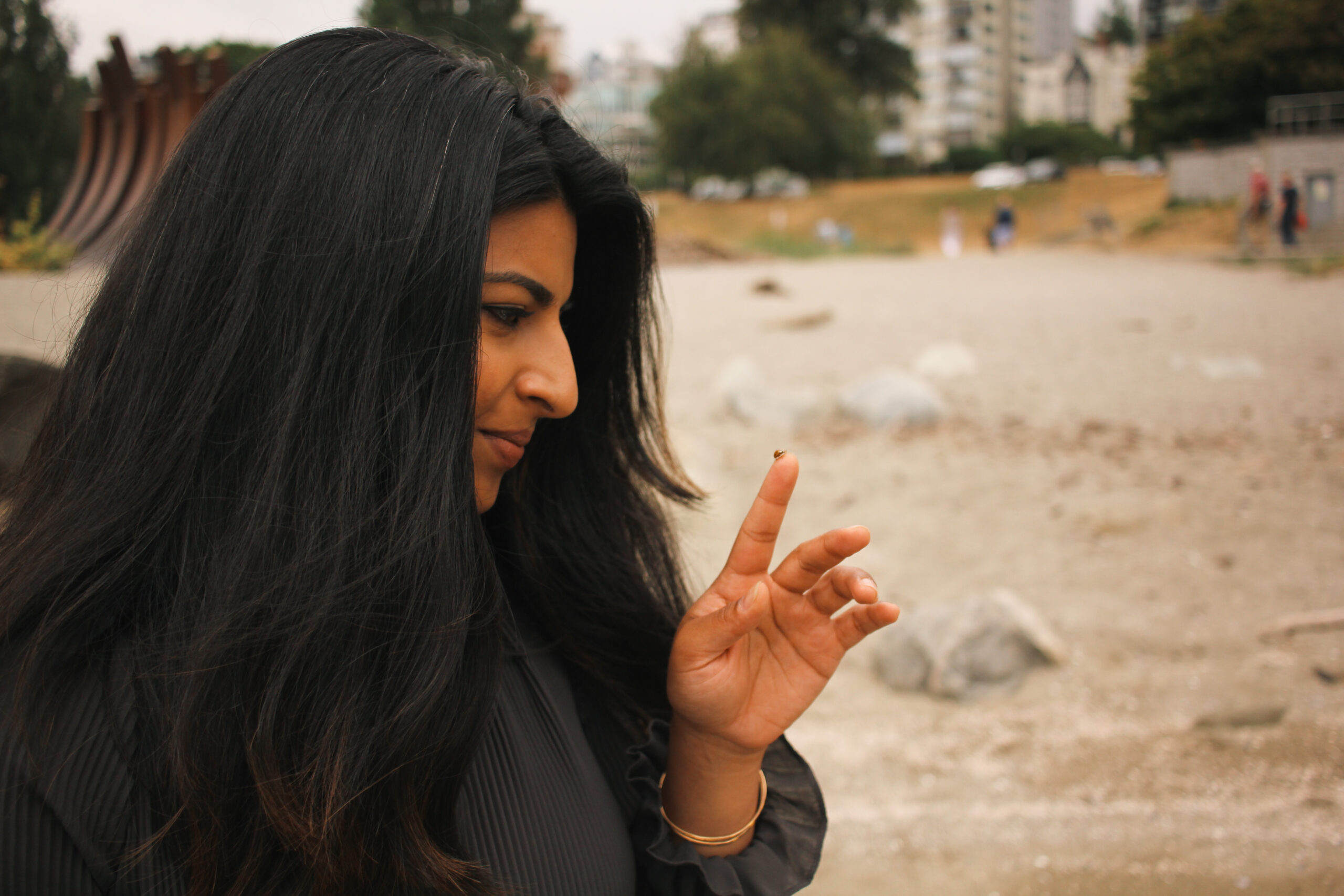
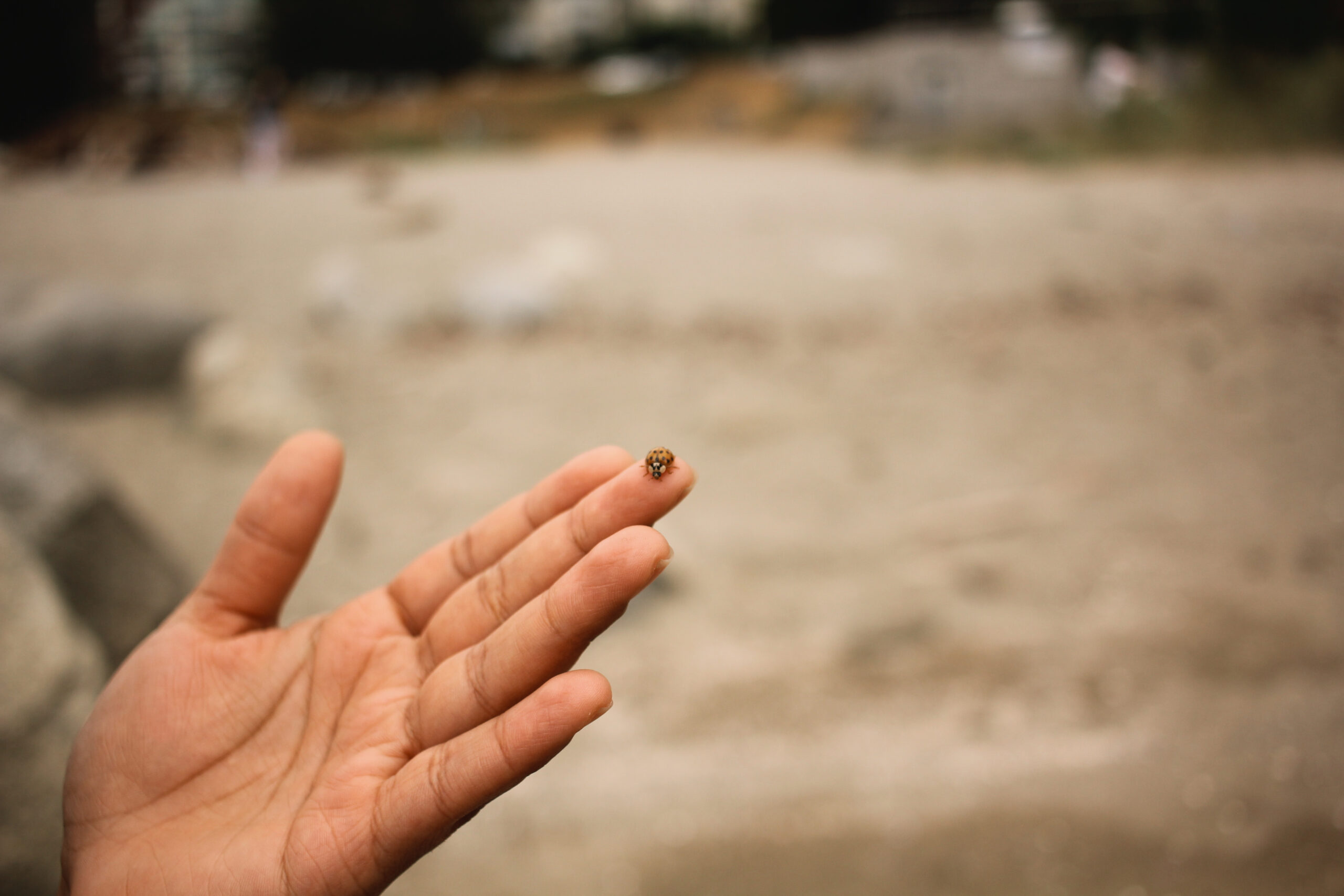
It shouldn’t be hard for a movement known for its organizational prowess to seize that opportunity. But that’s the thing about politics: everything’s harder than it looks.
Appadurai knows this. She’s keenly aware of the odds stacked against her — not just Eby’s gargantuan head start but also the tiny window of time her campaign has to sign up new members. The deadline was looming before she began. It’s summer and nobody’s paying attention. Her campaign doesn’t have the deep pockets typically needed to conduct widespread voter outreach. Appadurai believes she can overcome these odds, but winning the races isn’t the only measure of success.
“If she ends up with a vote in the single digits, percentage-wise, then not much will change,” Telford, the political scientist, told me. “But if she starts to take down 25 to 30 per cent of the vote, then I think the NDP might start to think, ‘hmm, a significant portion of our base is not happy with the direction that we’ve been going, and maybe we have to do more for them.’ ”
And if the miracle occurs and those numbers push past 50 per cent? In that case, Appadurai will become the latest in a long line of insurgents to find that winning was the easy part.
Updated on Sept. 1, 2022, at 5:16 p.m. PT: A previous version of this story stated that the B.C. NDP had lost 9,000 members since Premier John Horgan took office and linked to an op-ed published by Dogwood which states “the BC NDP dwindled from 20,000 to 11,000 under Horgan’s leadership.” The Narwhal reached out to the NDP to confirm these numbers and, according to a representative of the party, it is typical to see a surge in membership during a party leadership race but it’s normal for people to then lose interest and let their membership expire. The number of members that the B.C. NDP had prior to Horgan’s race for leadership was also around 11,000, the representative said. The story has been updated to reflect this new information.
[Top photo: After years of working as a climate activist, Anjali Appadurai is gunning to be the next leader of the B.C. NDP. Photo: Rebecca Simiyu / The Narwhal]